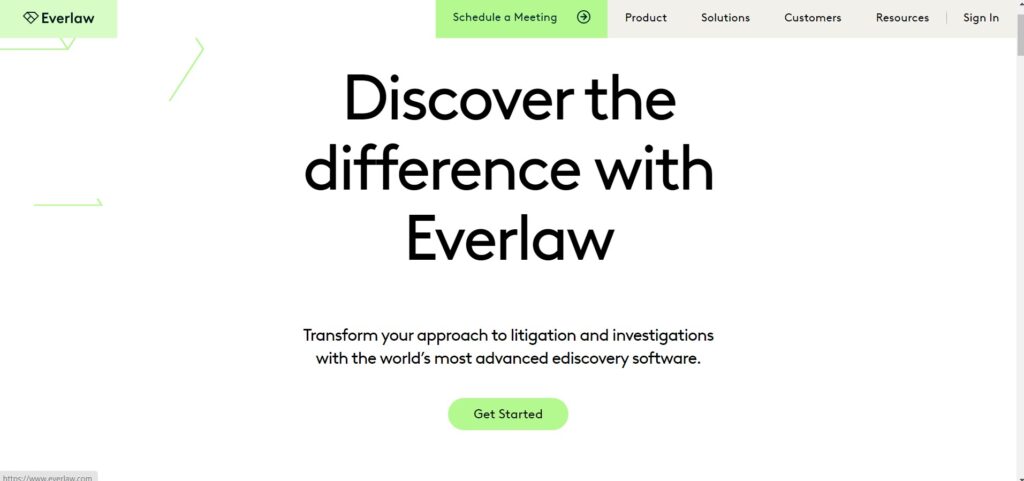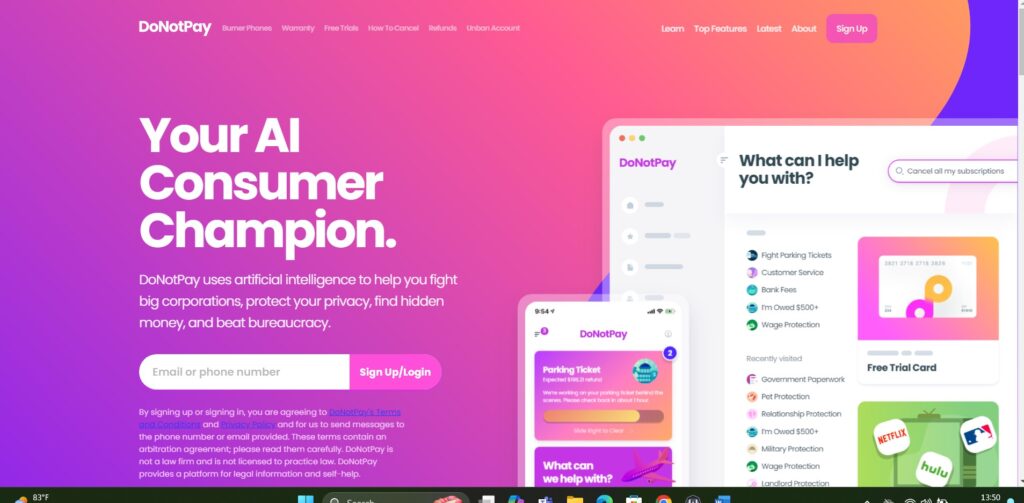Legal AI tools
Best 10 Legal AI Tools: Transforming the Legal Industry
Artificial Intelligence (AI) is rapidly changing the landscape of the legal industry, providing innovative solutions that enhance efficiency, accuracy, and accessibility.
Legal AI tools are designed to assist legal professionals in various tasks, from document review and contract analysis to legal research and case management. This overview explores how AI is transforming the legal sector, key tools, their applications, and the future of AI in law.
Legal AI tools are software applications that utilize artificial intelligence technologies to streamline and automate legal processes. These tools leverage natural language processing (NLP), machine learning, and data analytics to assist lawyers, paralegals, and other legal professionals in their work. By automating routine tasks and providing valuable insights, these tools allow legal professionals to focus on higher-value activities that require human judgment and creativity.
But, with so many AI tools available, how can you choose the best options for your firm?
Here, we explore some of the most widely-used AI tools that legal professionals can use to improve law firm operations—and how to choose the best options for your practice.
1. ROSS Intelligence

ROSS is an AI-driven legal research tool that utilizes natural language processing to help lawyers find relevant case law and statutes quickly.
- Use Cases:
- Streamlining legal research by answering complex legal questions using simple language queries.
- Providing instant access to relevant case law and legal precedents tailored to specific queries.
- Analyzing large volumes of legal documents for insights, enabling lawyers to build stronger arguments.
2. Kira Systems

Kira is a contract analysis tool that uses machine learning to extract and analyze key data from contracts and legal documents.
- Use Cases:
- Automating contract review and due diligence processes, making it faster to close deals.
- Identifying and flagging potential risks in contracts through advanced data analytics.
- Analyzing contract language for compliance and negotiation purposes, ensuring better outcomes.
- Use Cases:
3. LegalZoom
LegalZoom is an online platform that provides legal services, including document preparation and legal advice, utilizing AI to guide users through legal processes.
- Use Cases:
- Assisting individuals in creating legal documents such as wills and business formation papers with user-friendly templates.
- Providing automated legal advice based on user input, making legal services accessible to non-lawyers.
- Streamlining access to legal resources for small businesses and individuals, reducing barriers to legal assistance.
- Use Cases:
4. Everlaw

Everlaw is a cloud-based litigation platform that combines AI with traditional litigation tools to improve case management and e-discovery.
- Use Cases:
- Automating the document review process for litigation, saving time and reducing costs.
- Using AI algorithms to identify key documents and relevant evidence, improving trial preparation.
- Facilitating collaboration among legal teams during trials, enabling real-time updates and communication.
- Use Cases:
5. LexisNexis
LexisNexis offers a suite of legal research and analytics tools powered by AI, enabling legal professionals to access case law, statutes, and secondary sources efficiently.
- Use Cases:
- Conducting comprehensive legal research across jurisdictions with advanced search capabilities.
- Analyzing case outcomes and legal trends using data analytics, helping lawyers craft informed strategies.
- Accessing legal news and updates to stay informed on relevant developments, ensuring proactive legal advice.
- Use Cases:
6. Clio
Clio is a legal practice management software that utilizes AI to streamline case management, billing, and client communication.
- Use Cases:
- Automating client intake and management processes to reduce administrative burdens.
- Using AI to track billable hours and manage invoices, ensuring accurate billing practices.
- Facilitating communication between clients and legal teams through secure portals, enhancing client engagement.
- Use Cases:
7. Casetext
Casetext is an AI-powered legal research tool that helps attorneys find relevant case law, statutes, and regulations quickly and accurately.
- Use Cases:
- Conducting legal research using advanced search algorithms that understand context and legal terminology.
- Providing contextual analysis of case law to support legal arguments, improving the quality of legal writing.
- Automating the generation of legal briefs and documents, saving time and resources.
- Use Cases:
8. DoNotPay

DoNotPay is an AI-powered chatbot that helps users navigate legal processes, providing legal advice and document preparation services.
- Use Cases:
- Assisting users with small claims court filings and disputes by generating necessary forms.
- Helping users draft demand letters and legal complaints based on their input and scenarios.
- Providing guidance on consumer rights and legal issues, empowering users to handle simple legal matters independently.
- Use Cases:
9. Evisort
Evisort is a contract management platform that uses AI to analyze and manage contracts throughout their lifecycle.
- Use Cases:
- Automating contract review and compliance checks to ensure adherence to regulations.
- Providing insights into contract performance and renewal dates, improving contract management efficiency.
- Streamlining collaboration on contract negotiations among stakeholders, reducing time spent in back-and-forth discussions.
- Use Cases:
10. ZyLAB

ZyLAB offers e-discovery and information governance solutions powered by AI, enabling legal teams to manage electronic evidence efficiently.
- Use Cases:
- Automating the e-discovery process for litigation and investigations, making it faster and more reliable.
- Analyzing large datasets for relevant information and evidence, enhancing investigative efficiency.
- Facilitating compliance with data privacy regulations, helping organizations avoid legal pitfalls.
The Future of AI in the Legal Industry
As AI technologies continue to evolve, their impact on the legal industry will expand further. Legal AI tools will increasingly become integral to legal practice, enabling firms to operate more efficiently and deliver better client service.
The integration of AI will likely lead to the development of more sophisticated tools that can handle complex legal tasks, allowing legal professionals to focus on strategic decision-making and complex legal issues.
Conclusion
Legal AI tools are transforming the legal landscape by enhancing efficiency, accuracy, and accessibility. By leveraging AI technologies, legal professionals can streamline their workflows, reduce costs, and improve client service.
As the legal industry embraces AI, those who adopt these tools will be well-equipped to navigate the challenges and opportunities of a rapidly changing environment, positioning themselves for success in the future.


















